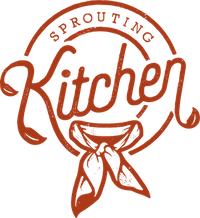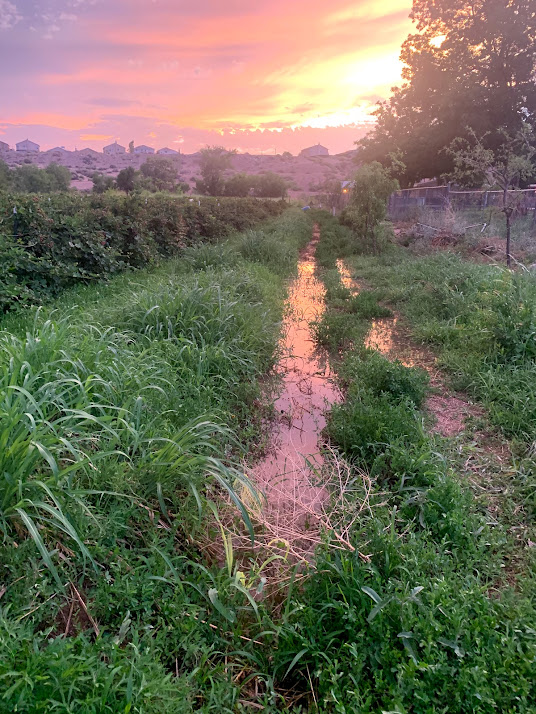An Interview With Lorenzo Candelaria,
of Cornelio Candelaria Organics
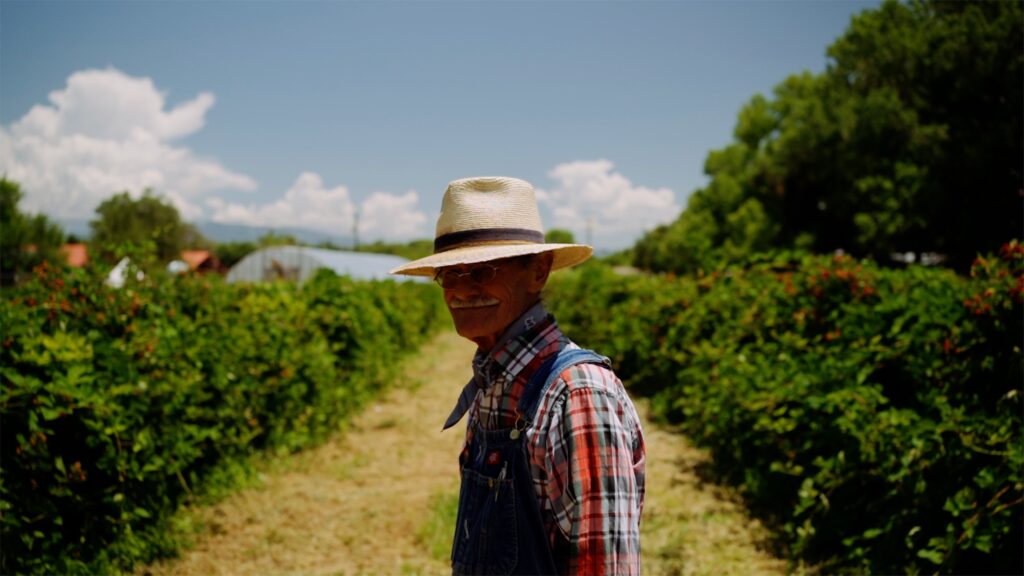
What inspired you to start farming?
When I was born, my parents had just gotten back from Oakland California from where my father had been stationed by the military and he lived in an abandoned house, it was inhabitable. My mom was pregnant with me, and my grandmother who was a healer and a partera, and my dad sent my mom over with my grandmother. My mother’s pregnancy only lasted for seven months. The ranch that my mother had was very isolated; one thousand miles from nothing- no electricity, no running water, no cars. The only conveniences were the windmill, the water, and the horno. The earth and oven: the horno. Those were the only two amenities. Because I was born very premature- I weighed maybe two pounds, she knew an infant that small and delicate needed heat and warmth to survive, so she heated up the horno and incubated me. At the end of her life, we talked, she shared love, knowledge, wisdom, at the end of the conversation, she says to me, “the love, the honor, the duty you have to your mother you must also have in your life for the earth because she too is your mother.” From both womb into the land. So my relationship to the land, to the earth, is a very real connection, not just a concept. She is my mother. I am not a farmer or a businessman, I just care for what is my duty- to sustain, maintain, to groom, and to nourish my mother, and so what I do is that, it’s the basic premise of my work- I’m a very happy man because of it.
Tell us about the land you farm on
My family has been farming the same land for seven generations. For me, it’s a sacred thing. Not just because my family has been there for so long, [but because] the native population farmed that same land for one thousand years prior to the Spanish. That land has been providing sustenance for humankind for thousands of years. We are in the desert and that’s an amazing thing because food has to be consumed and the Rio Grande is one of the major water sources throughout the state. That makes water sacred, and I look at my practices and my concepts of farming in that sense. This is not just a farm, it’s a sacrament. I view my practices and knowledge of what the land is and the sacredness of what the water is as my program for planting and harvesting.
What do you think people’s relationship with their food is like nowadays?
People don’t have a relationship with your food. In order to have a relationship with your food, you have to at least cook it. At the very least. Because I am able to be part of the whole cycle- planting, caring, cultivating, harvesting, processing, and then consuming it, the cycle is complete. So my connection to my food is a sacrament. It’s not something I just stick in my mouth to fill my belly. It’s something I put in my spirit to raise it. That’s how I see my food. I think in this society, because- well for many reasons- we don’t have time to cook, plant, we’ve lost that connection, broken that cycle. That’s tragic. That’s where our diseases are coming from. The fulfillment that I get is not just from my belly, but from the person that I am. I hope to keep that up for a long time, at least for 100 years [and] 100 more years.
What do you think needs to happen for people to re-harness that relationship with food?
The food system needs to crash. Because the way farming is done today- monocropping, genetically modified foods- it’s disastrous.
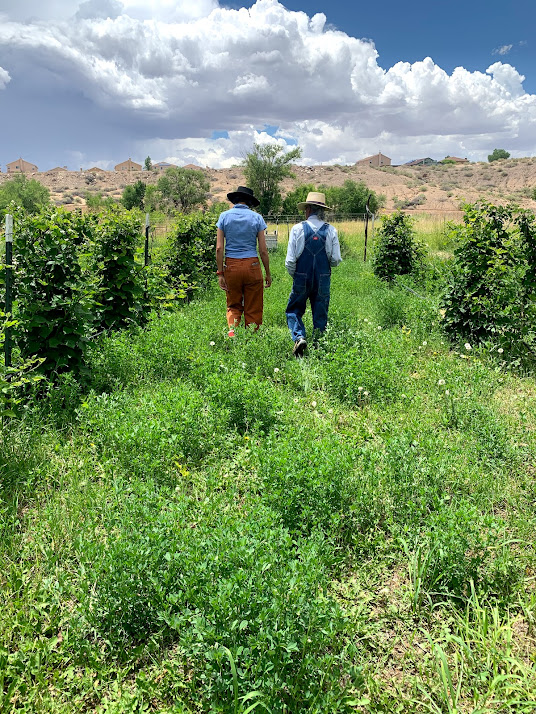
What do you harvest on your farm?
We grow hundreds of varieties of crops- millions of plants- but we only harvest only one thing- consciousness. I think that incorporates everything in one sentence. That’s what is strive to do in my daily duties- that this is a sacrament and I am here only for a short time. What I can leave behind, what I can teach is the most valuable legacy I can leave- there is nothing more valuable I can live- because our society- the world is a hard place to live. Without that knowledge, without that knowledge of the sacredness of what it is as living creatures and our association with other learning creatures, if we don’t learn that, we are doomed, to extinction, because we are this and this is us, and we have to learn to understand that. Every step we take on this earth is marked. There is no one less step, after the last step is taken, there are no more steps. What we do in the interim from birth to death is to understand the sacredness of what it means to be human. Through the farm I have been able to iterate that, to help people understand the greatness of our being, of being human, and the responsibility of what that entails. So we work every day with those concepts and ideas of sacredness. I hope to do this for another 100 years (chuckles) until I can take that last step.
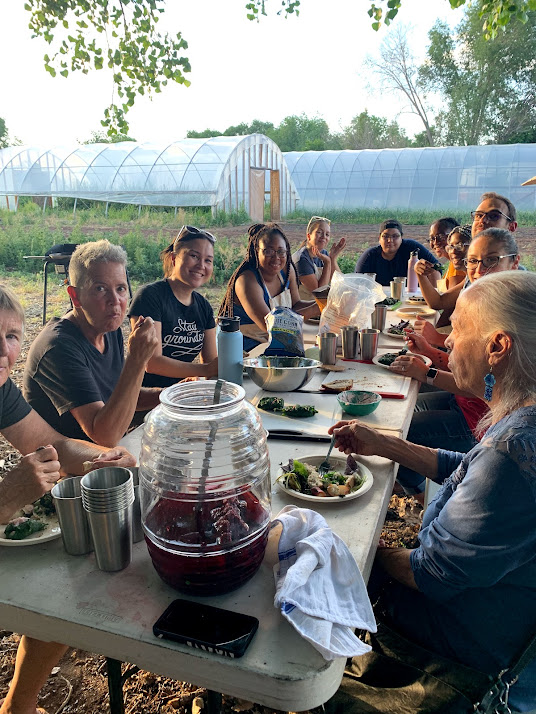
Have you enjoyed partnering with The Sprouting Kitchen?
It’s been one of the more fruitful things that I’ve done on the farm, aside from and in conjunction with education because that’s what you’re doing- you’re teaching. And for me, the contribution that I can give to society, some of the efforts of what I do is exactly that- to teach is what we were talking about now- spirituality, food, and the concepts of what mother earth is and the idea that we are all spirit like the rest of the things that are alive here on earth- we are all spirit. If we could teach how to prepare this sacrament of what we call food, if we could teach people how to do that, I think that a very basic and very primal way of teaching the importance of our consumption of food. And so that’s what we work for all the time- education. The production is nice because it puts nickels in my pocket. But that’s not the end goal.
